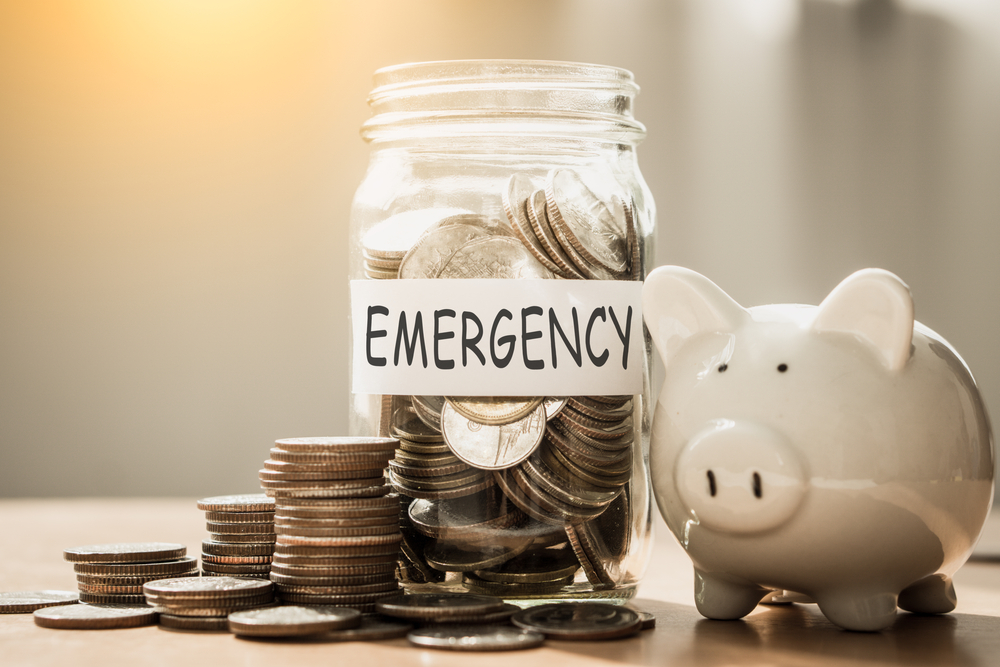In today’s volatile and fast-paced world, financial stability is more vital than ever. Having an emergency fund is a crucial component of achieving this stability. Emergency reserves serve as a financial cushion for unanticipated occurrences such as job loss, medical problems, and house repairs. This article will highlight the significance of emergency money, provide a guidance on how to develop one, and explain when to use it.
The Value of Emergency Savings
Economic security: A reserve fund is a safety net that guarantees you have sufficient funds to handle unexpected bills. Without one, you may be forced to rely on loans with high interest rates, credit card debt, or even your retirement funds, which can result in long-term financial instability.
Decreased anxiety: Knowing you have a cash buffer reduces stress and anxiety associated with unforeseen situations. This tranquility might assist you in making more logical decisions during challenging circumstances.
Improved financial habits: The accumulation of an emergency fund needs discipline and dedication. The process of saving promotes improved financial habits and aids in expense prioritization.
How to Establish an Emergency Savings
Determine the suitable amount: The standard recommendation for an emergency fund is three to six months’ worth of living expenses. When determining the appropriate amount, you should consider your monthly expenses, job security, and any dependents.
Establish a reasonable objective: Break your target amount down into smaller, more attainable goals. For instance, if your goal is to save $6,000 per year, you should save $500 per month. This makes the procedure less daunting and maintains your motivation.
Establish a separate account for savings: To avoid using your emergency fund for non-emergencies, you should open a separate savings account for this purpose. Choose a checking account with no or minimal fees and convenient access to funds when needed.
Streamline your savings: Set up recurring monthly transfers from your bank account to your emergency fund. This eliminates the need to remember to transfer the funds and guarantees that you make steady progress toward your objective.
Reduce discretionary spending: To make saving for an emergency fund more manageable, you should evaluate your current spending habits and identify areas where you can reduce your outlays. Simple adjustments, such as eating out less frequently, can result in substantial savings over time.
Consider part-time work, freelancing, or selling stuff you no longer need if reducing your spending is not enough to increase your income. Any surplus funds can be deposited into an emergency fund.
When to Utilize an Emergency Savings
In the unfortunate event that you lose your job or see a fall in income, your emergency fund can assist in covering your living expenses while you seek new employment or adjust to your new financial circumstances.
Unanticipated medical expenditures might place a considerable burden on your budget. These expenses can be covered by an emergency fund without derailing your long-term financial goals.
Significant repairs to your home or vehicle can be expensive and frequently occur without warning. Your emergency fund can assist in covering these costs and prevent you from incurring debt.
Whether it’s a family emergency or a last-minute business opportunity, unforeseen travel can be costly. Establishing an emergency fund can assist in covering these expenses and alleviate financial strain.
Natural disasters: Natural catastrophes can strike at any time, causing property damage and life disruption. An emergency fund can provide much-needed financial assistance in times of difficulty.
Creating an emergency fund is vital for securing one’s financial future. It provides a safety net in the event of unforeseen events, decreases stress, and promotes better financial habits. By calculating a suitable amount to save, establishing realistic goals, automating savings, and determining when to spend your emergency fund, you may confront life’s uncertainties with greater confidence.

